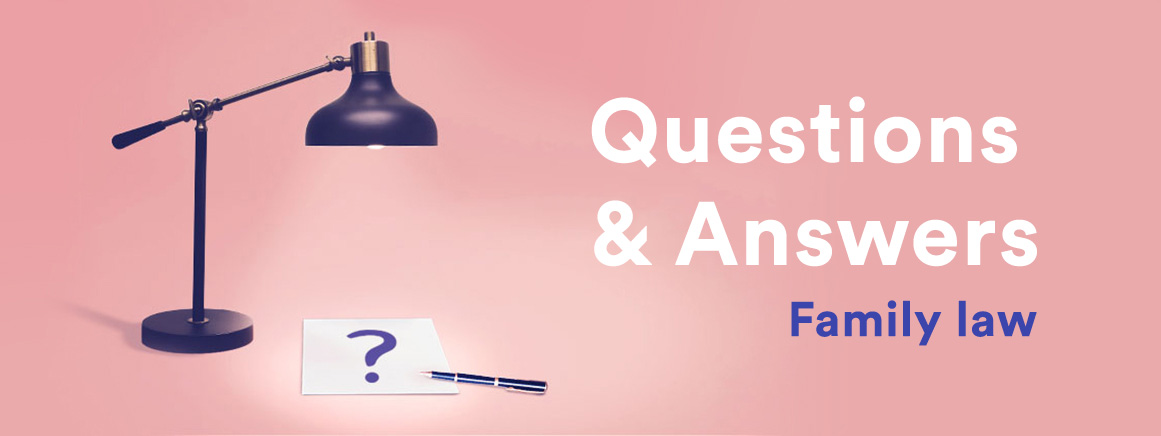
My child is turning 12, can my child now choose which parent to live with?
My child is turning 12, can my child now choose which parent to live with?
Often in the context of divorce, the same or similar questions are asked to lawyers. In this series of articles “The most frequently asked divorce questions” our family law attorneys will answer some of these questions.
Question:
My child is turning 12, can my child choose which parent to live with?
Answer:
The answer to the question is: NO
So where did that idea come from?
A child aged 12 or older may not choose which parent to live with. Parents remain responsible for primary residence and care arrangements until a child is 18.
If proceedings are pending before the court, a child aged 12 and over is given the opportunity to be heard by the court. A so-called ‘child interview’ then takes place (this was previously called ‘child hearing’). The child may also write a letter to the judge stating his/her wishes. At a conversation between the judge and the child, the parents are never present.
The law states that this is mandatory. This therefore means that the court will always consider the child’s opinion in the final decision. But it is not the case that the child’s opinion is decisive or blindly adopted. It is a right to be heard as a 12-year-old, not a duty. If a child does not exercise this right, the decision will be made without hearing the child’s opinion.
To what extent does a child’s age play a role?
Often, the older the child is, the more heavily the child’s opinion and wishes will be taken into account in the decision. If there are proceedings to establish a care and contact arrangement between a father and his 16-year-old son and the son indicates that he really does not want contact, the judge will be more inclined to take the 16-year-old child’s wishes into account in the decision to be made than if the child is 12 and has the same opinion. However, every case is different and on a case-by-case basis, the judge will consider all the circumstances in the decision.
In exceptional cases, children younger than 12 may sometimes be heard by the court. For example, when they are very wise for their age and/or when there are very special circumstances.
Does a child even want to choose?
It is very important for parents to keep talking to each other so that proceedings are not necessary at all. This is because many children find the idea of having to ‘choose’ extremely stressful. Having to choose can even be detrimental to mental development because, in doing so, a child will always shortchange another parent. Moreover, a child is made up of two parents, and when one has to be rejected, actually a part of the child (i.e. his/her own) is rejected They would prefer not to hurt either their father or their mother. Children generally do like to be involved in the decision to be made and parents are therefore advised to keep talking to their child(ren).
Should you have more questions on this topic or come together as parents to discuss when a dispute arises, and to see if a mutually agreed solution can be reached, please contact us without obligation.
The most frequently asked divorce questions
Often in the context of divorce, the same or similar questions are asked to lawyers. In this series of articles “The most frequently asked divorce questions” our family law attorneys will answer some of these questions.
If you have a question you would like to see answered in the next ” The most frequently asked divorce questions“, please let us know!



